Educational Approach
The key is instructional design
Contemporary Technology University is aware of adults’ specific learning characteristics and needs, and embraces a collaborative pedagogical approach, and incorporates instructional models such as the 4E Learning Cycle. Each course adapts its daily content in a learning cycle that helps students build a strong foundation of knowledge through active participation. Each course activity is designed as a part of cognitive stages of learning that comprise engaging, exploring, extending, and evaluating.
1. Adult learning approach
We are aware of adults’ specific learning characteristics and needs! A student-centered approach focusing on student decision-making as a guiding force in the learning process.
2. Active participation to collaboration
We embrace a collaborative pedagogical approach, and incorporate instructional models such as the 4E Learning Cycle. Each course adapts its daily content in a learning cycle that helps students build a strong foundation of knowledge through active participation.
3. Hybrid model delivery
We take the best of both synchronous and asynchronous delivery models.
4. Sequenced learning path
We embrace a collaborative pedagogical approach, and incorporate instructional models such as the 4E Learning Cycle. Each course adapts its daily content in a learning cycle that helps students build a strong foundation of knowledge through active participation.
Online Sessions Work
100% of each course consists of asynchronous sessions. These sessions do not only include simply instructor-led lectures but also multimedia contents, workshops, and interactive exercises.
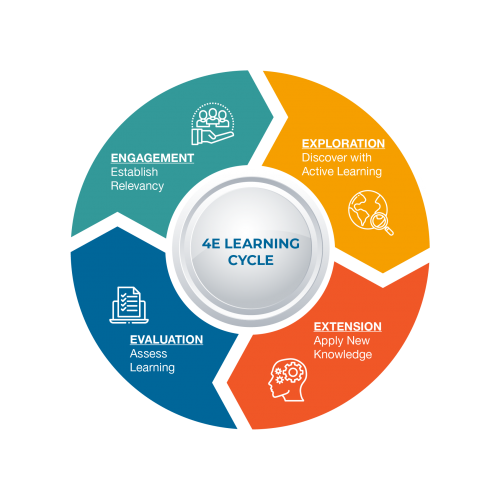

Online lectures accommodate the fundamental adult learning instructional design elements such as real-world problem-solving practices.
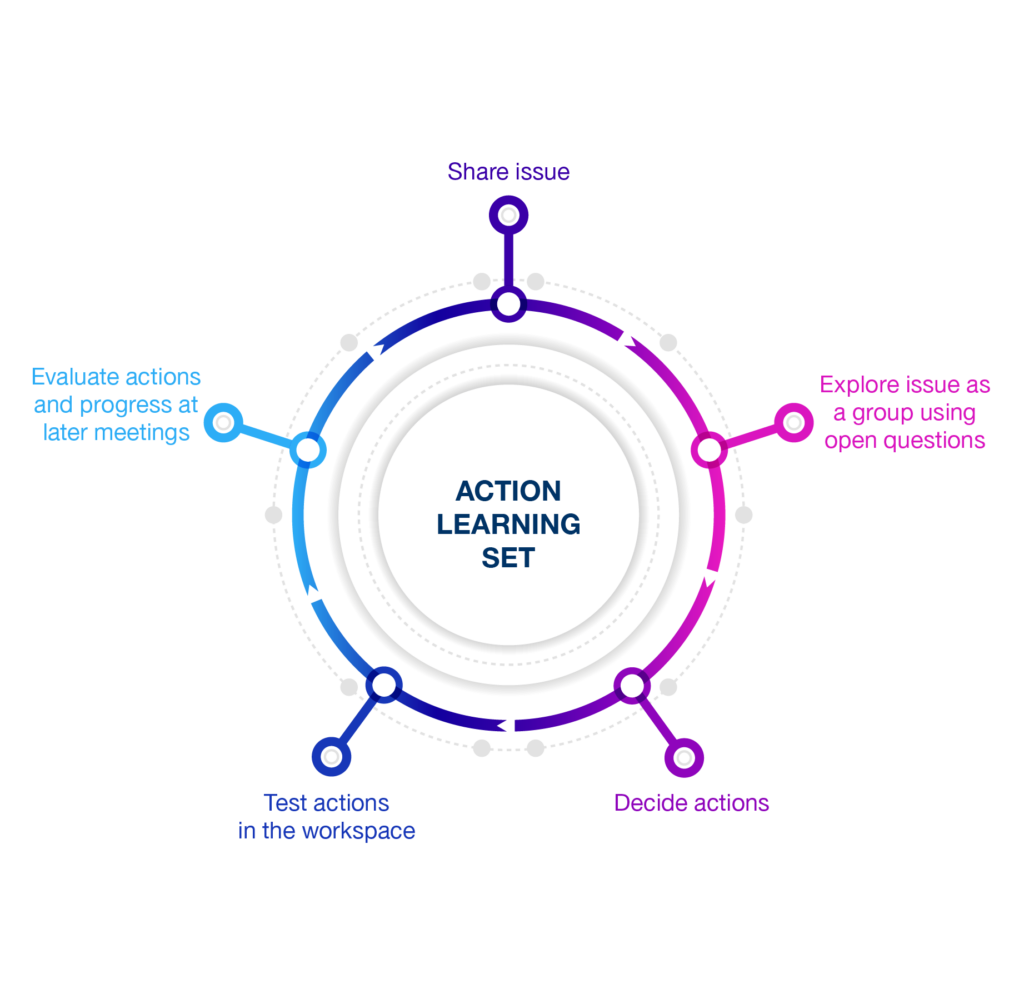
Course Structures
Self-paced sessions work
100% of each course consists of asynchronous sessions including a rich variety of collaborative learning activities. We constantly revise the efficiency of them benefiting from online education researched-based strategies. We recognize the best-known theoretical frameworks and integrate them into our teaching practice. Each course encourages students to create a sense of community and meaningful learning through active participation designed with the Community of Inquiry (CoI) framework. Discussion forums engage them in well-qualified interactions combined with social, cognitive, and teaching presence. Action learning sets offer an opportunity for rich, relevant, and highly applied learning with group collaboration. We integrate different learning models in our workshops such as the 4MAT model taking into account different ways people learn to provide a great opportunity for learners to practice the concepts, construct meaning together, synthesize information, and evaluate their progress and knowledge.
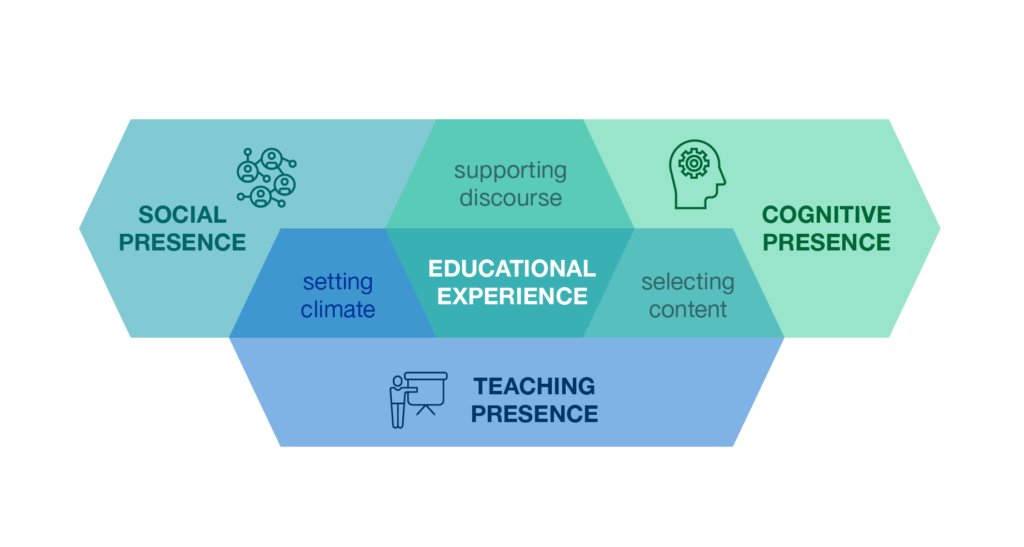
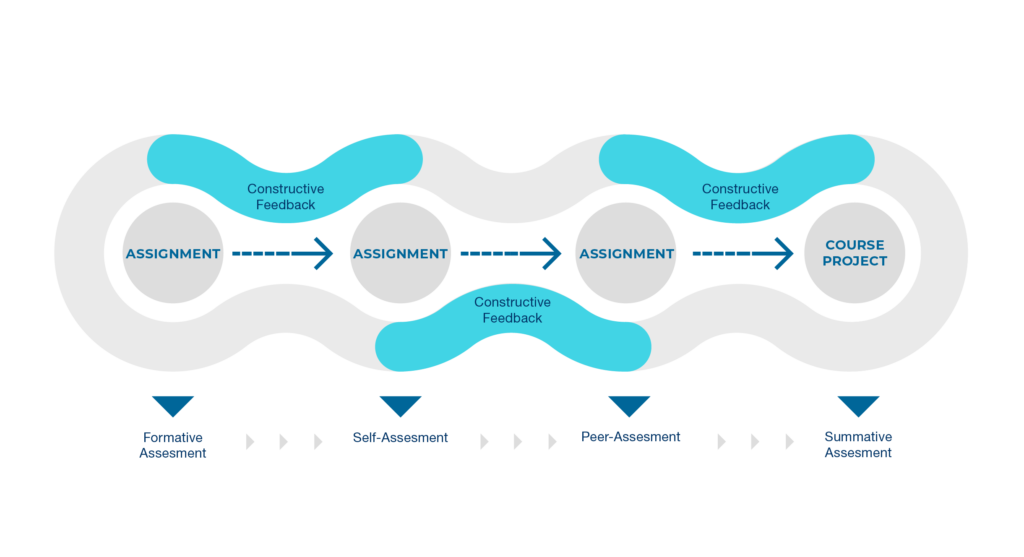
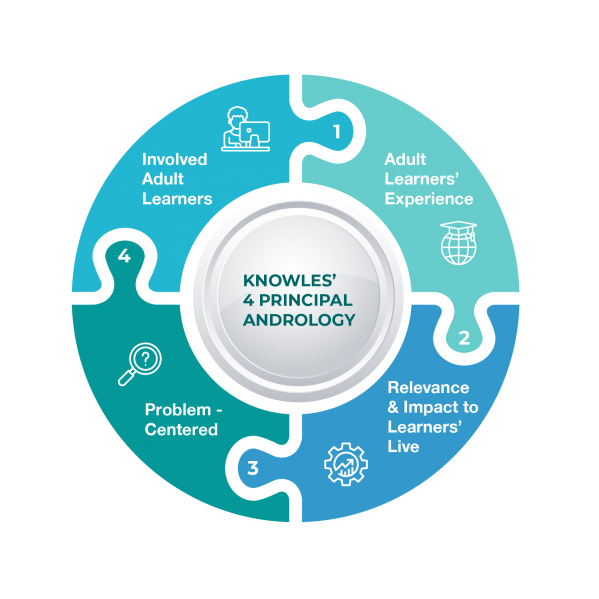
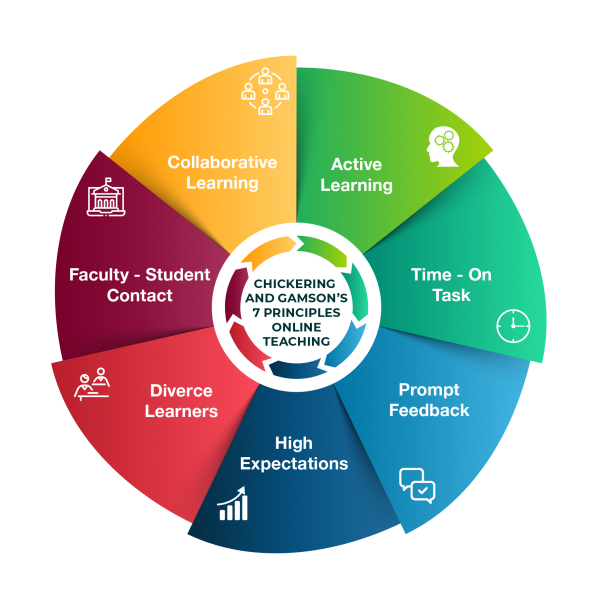
Assessment Works
Contemporary Technology University recognizes the importance of using different assessment and feedback types. All courses support the learning process with a combination of formative, summative, and peer assessments and timely feedback. Each course has a course project to be evaluated based on the accepted methods at the Master’s degree level with a project report to be submitted at the end as a measure of summative assessment to gauge a student's successful attainment of the course learning outcomes. In addition to the grade, feedback and comments on several works are provided to the student as part of the grading and assessment procedure.
We are ready to tackle
the factors that need to be thought out and issues for online learning to be effective!1.Technological support
Easy and fast access to help regarding specific needs.
2. Cognitive support
Decrease your cognitive load with the help of mentors & instructors. Each course activity is designed as a part of cognitive stages of learning that comprise engaging, exploring, extending, and evaluating.
3. Skill development facilitator
We understand that it is much easier to put off the work that is required to keep up online. We support your self-organization skills and facilitate your time management by clear explanation of expectations and requirements and open communication to balance your time and create a routine for yourself.

